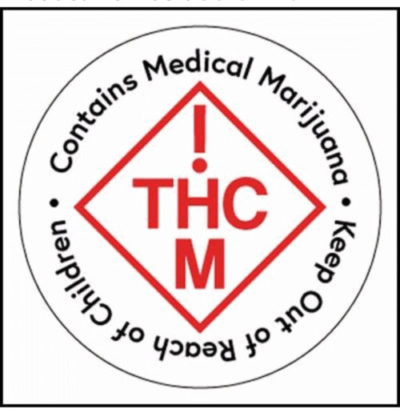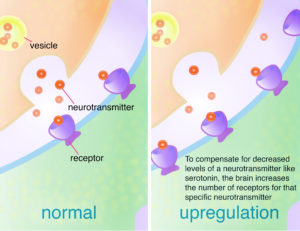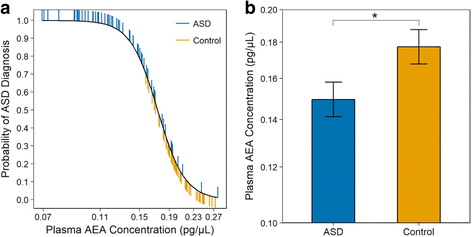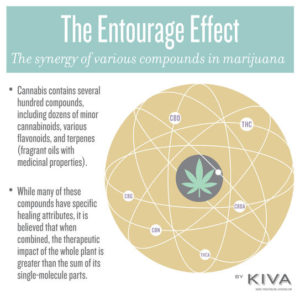THC for Autism? My pediatrician said no…but wait, read this…

Working with children on the spectrum and cannabis, we hear this often from parents: “My pediatrician suggested that we try CBD, but we should definitely stay away from THC. We understand from our pediatrician that it can harm a developing brain.” Well, let’s talk about that for a moment. There is research out there that does support THC as harmful for developing brains. I’ve read it. I understand it. And I agree the risk is not worth it…for normally developing children.

You see, children with autism aren’t often considered “normally developing”. According to Merriam-Webster, autism is defined as: “a variable developmental disorder that appears by age three and is characterized by impairment of the ability to form normal social relationships, by impairment of the ability to communicate with others, and by repetitive behavior patterns.” So do these studies that have concluded that THC is harmful to a developing brain apply to our population? I would argue that they do not!
Further proof that THC is needed for autism actually comes from research itself. Check out our page for current research regarding  autism and cannabis, many of the articles discussing the positive benefits of THC for autism. One article in particular (here) discuses how children on the spectrum have higher levels of CB2 receptors compared to a group of normally developing children. In biochemistry, it is a known phenomenon that when the body needs something that it is having trouble producing, it will produce more of the compounds that “grab” on to what it needs. These compounds are also known as receptors.
autism and cannabis, many of the articles discussing the positive benefits of THC for autism. One article in particular (here) discuses how children on the spectrum have higher levels of CB2 receptors compared to a group of normally developing children. In biochemistry, it is a known phenomenon that when the body needs something that it is having trouble producing, it will produce more of the compounds that “grab” on to what it needs. These compounds are also known as receptors.
 For example, to put this in non scientific terms, say you want to catch a rat in your house. You put out 1 rat trap, and than you wait…and wait..and wait. One trap may not be enough…who knows where the rat is hiding and if that rat will find that trap? So what do you do to increase your odds of catching that rat? You put out more traps. The more traps you have placed and the more likely that rat will cross paths with one…meaning you will hopefully be rid of your problem sooner than later.
For example, to put this in non scientific terms, say you want to catch a rat in your house. You put out 1 rat trap, and than you wait…and wait..and wait. One trap may not be enough…who knows where the rat is hiding and if that rat will find that trap? So what do you do to increase your odds of catching that rat? You put out more traps. The more traps you have placed and the more likely that rat will cross paths with one…meaning you will hopefully be rid of your problem sooner than later.
Same with how the body works.  If it is deficient in something, let’s say a cannabinoid that we make ourselves, it increases the production of the receptors to try and grab any cannabinoid that happens to cross its path (this is called upregulation) therefore giving the cell/body the best chance that it will find what it needs.
If it is deficient in something, let’s say a cannabinoid that we make ourselves, it increases the production of the receptors to try and grab any cannabinoid that happens to cross its path (this is called upregulation) therefore giving the cell/body the best chance that it will find what it needs.
And what binds to CB2 receptors that the body is deficient in? In our bodies, we produce two cannabinoids, generically called endocannbinoids. Both of these endocannabinoids bind to CB2, so the fact that children with autism produce more CB2 receptors means that their bodies aren’t producing enough of these compounds.
 Another study (here) shows that blood levels of one endocannabinoid in particular, called anandamide or AEA, in children with autism (labeled ASD in the above graph) was drastically lower compared to a group of children who did not have autism (labeled control). This correlates with the previous study, that the body of a person with autism is not producing enough of their own endocannabinoids. Why that is the case, no one can say for sure at the moment and more research is definitely needed.
Another study (here) shows that blood levels of one endocannabinoid in particular, called anandamide or AEA, in children with autism (labeled ASD in the above graph) was drastically lower compared to a group of children who did not have autism (labeled control). This correlates with the previous study, that the body of a person with autism is not producing enough of their own endocannabinoids. Why that is the case, no one can say for sure at the moment and more research is definitely needed.
So what does a person do when their body isn’t producing enough of something? Well, what do we do for a diabetic patient who isn’t producing enough insulin? We supplement them from an outside source. But do we give insulin to people with normally functioning pancreases that produces enough insulin? No…that makes no sense and could possibly cause harm. Same with THC and children. I personally wouldn’t recommend giving THC to a child who is developing normally. But for those who are deficient in their own endocannabinoids, like research seems to suggest is the case for children with autism, an outside source can help. And what outside source binds to CB2 receptors with high affinity? THC…
So, you may be asking yourself, why do I need to use any other cannabinoids? THC for the win! But I am not arguing that children with autism should only use THC.  As a matter of fact, CBD does inhibit the breakdown of our bodies own cannabinoids and therefore will lead to higher levels of these compounds in our bloodstream. This will also help a person who isn’t make enough on their own. Also, CBD and THC just work better together. This is a phenomenon known as the “entourage effect“. Besides all of that, CBD has many other mechanisms of action that are beneficial for people with autism (but more info on that later)!
As a matter of fact, CBD does inhibit the breakdown of our bodies own cannabinoids and therefore will lead to higher levels of these compounds in our bloodstream. This will also help a person who isn’t make enough on their own. Also, CBD and THC just work better together. This is a phenomenon known as the “entourage effect“. Besides all of that, CBD has many other mechanisms of action that are beneficial for people with autism (but more info on that later)!
For those still wondering if using THC will cause permanent damaging effects to children with autism, look at this recently published article (here). In this article, the authors reviewed 69 studies that showed a small but significant reduced cognitive functioning in adolescents and young adults who reported frequent cannabis use. However, studies requiring abstinence from cannabis for longer than 72 hours had a very small, nonsignificant effect size. What does this mean?  They concluded that though continued cannabis use may be associated with small reductions in cognitive functioning, results suggest that cognitive deficits are substantially diminished with abstinence. So, unlike many pharmaceuticals that have side effects that are permanent, using cannabis and/or THC showed no permanent side effects in adolescents and young adults.
They concluded that though continued cannabis use may be associated with small reductions in cognitive functioning, results suggest that cognitive deficits are substantially diminished with abstinence. So, unlike many pharmaceuticals that have side effects that are permanent, using cannabis and/or THC showed no permanent side effects in adolescents and young adults.
Still need more evidence that THC is beneficial for children on the autism spectrum? Anecdotal evidence abounds, but if you want to read more, visit this page for testimonials of families we work with who have used THC (and other cannabinoids) successfully with their children on the spectrum.
4 Comments
Cheryl Trujillo · February 21, 2019 at 8:11 PM
This research and documentation will be so helpful! Thank you!
wholeplantaccess · February 21, 2019 at 8:16 PM
🙌🏼
Charlie s. Morris · February 25, 2019 at 10:41 AM
I am a cancer survivor patient. I have been using Morphine for a couple of years for pain. I am interested in learning more about Cachet CBD oil. I would like to try the more natural way versus the pain medicine I’ve been using. However, the little bit of research I’ve done , I wondering if I need a prescription from my doctor. Does First Choice Medicaid insurance pay for it? If you could send a reply back I would greatly appreciate it. If so where is the best place to purchase it? Do drug stores carry it? Would I purchase it somewhat like I do my other medications at the local drug store?
wholeplantaccess · March 3, 2019 at 11:33 AM
Hi Charlie. Congratulations on surviving cancer. I am not aware of your location or if that particular oil can be shipped in the US or not. But no insurance covers it at this point. If you can go to the contact form on this site and send us your information, I can direct you to a few really good choices.
Fyi, getting THC would be helpful too. If you are in a state where you can get a doctor’s recommendation (not the same as a prescription) that would help as well.